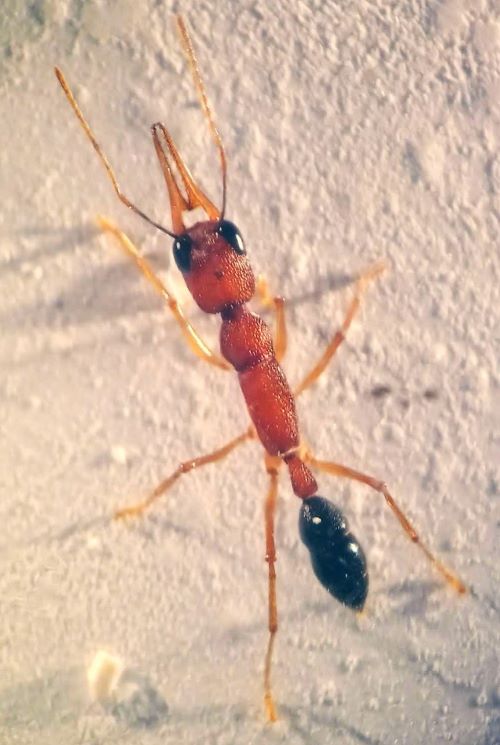A protein that enables smell — and stops cell death

A Harpegnathos saltator (Bogdan Sieriebriennikov)
While smell plays a considerable role in the social interactions of humans — for instance, signaling fear or generating closeness — for ants, it is vitally important. Researchers from New York University and the University of Florida found that a key protein named Orco, essential for the function of olfactory cells, is also critical for the cells’ survival in ants.
Their study showed that mutating the orco gene in Harpegnathos saltator jumping ants dramatically decreased the number of olfactory neurons, suggesting that Orco is necessary for the development and life of these cells. The findings, published in Science Advances, offer insights into the cellular and molecular basis of how animals socialize.
Ants have evolved approximately 400 smell receptors—a number closer to humans than most other insects—thanks to their use of pheromone communication.
“Ants, like humans, are highly social and display cooperative social behavior, and thus provide an ideal system to study sensory-mediated social behavior,” explained Hua Yan, assistant professor of biology at the University of Florida and the study’s senior author. “Expanded odorant receptor genes allow ants to ‘talk’ to each other in a large society with hundreds, thousands, or up to a million individuals.”
